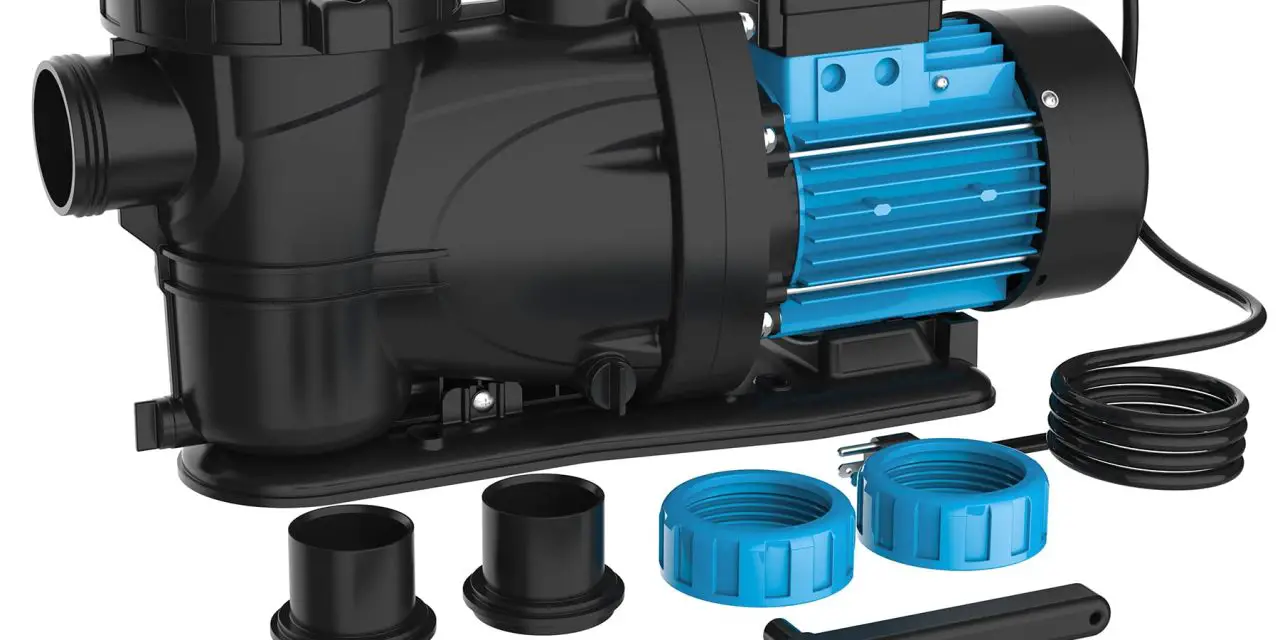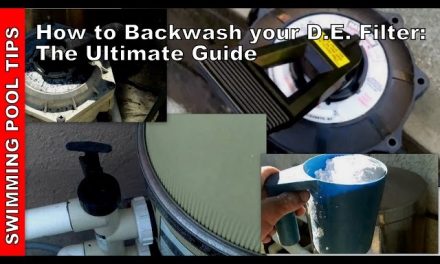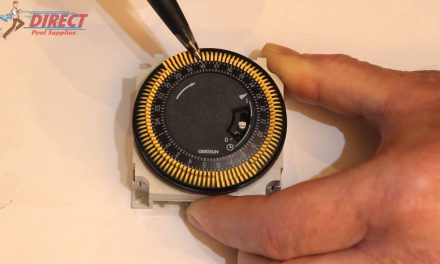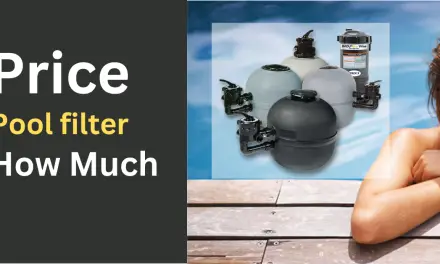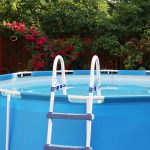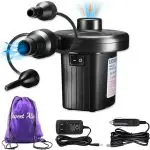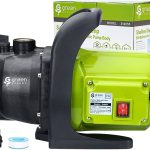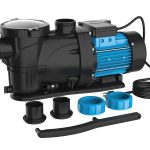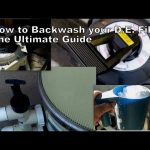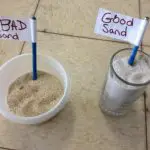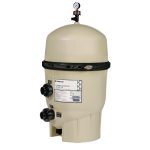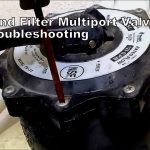Your pool pump may be loud because of excessive vibrations caused by an unbalanced impeller or a worn-out motor bearing. These issues can cause the pump to make loud, disruptive noises.
Maintaining a peaceful and serene environment around your pool is crucial for an enjoyable swimming experience. However, if you find your pool pump making an unnerving amount of noise, it can quickly ruin the tranquility. The loud noises emitted by a pool pump can be bothersome not only to you but also to your neighbors.
Understanding the reason behind your pool pump’s loudness is essential to find an effective solution. Excessive vibrations due to an unbalanced impeller or worn-out motor bearings can lead to a disturbingly loud pool pump. We will explore the possible causes of a noisy pool pump and discuss potential solutions to make it quieter, ensuring a peaceful poolside experience.
Causes Of Pool Pump Noise
If you’re wondering why your pool pump is so loud, there could be a few causes to consider. One common issue is worn-out bearings, which can create a grinding or screeching noise. Another possibility is a clogged impeller, which can cause the pump to work harder and generate more noise.
Loose or damaged components, such as a loose motor mount or damaged fan blades, can also contribute to excessive noise. Finally, vibration issues, such as an unbalanced pump or loose fittings, can result in loud noises. It’s important to address these issues promptly to ensure the longevity and efficiency of your pool pump.
Regular maintenance and inspections can help identify and resolve any noise-related problems.
1. Lubricate The Bearings
If you’re wondering why your pool pump is so loud, one possible culprit could be the bearings. To address this issue, you can start by lubricating the bearings. However, it’s important to choose the right lubricant for this task. You should always remove the pump motor before applying any lubricant to the bearings.
This will ensure that you can access the bearings properly and lubricate them effectively. By following these steps, you can reduce the noise coming from your pool pump and enjoy a quieter pool environment. Remember, regular maintenance and proper lubrication are key to keeping your pool pump running smoothly and quietly.
2. Clean The Impeller
If you’re wondering why your pool pump is so loud, one possible reason is a dirty impeller. To clean the impeller, start by turning off the power to the pump. Next, remove the pump lid and basket to access the impeller.
Carefully remove the impeller and clean it thoroughly to remove any debris or build-up. Once the impeller is clean, reassemble everything and turn the power back on. Cleaning the impeller can help reduce noise and improve the overall performance of your pool pump.
3. Tighten Loose Components
If your pool pump is making a loud noise, one possible reason could be loose components. Check for any loose screws or bolts and tighten them as necessary. This can help improve the stability of the pump and reduce the noise.
You can also consider using thread locker for added security. This product helps prevent screws and bolts from coming loose, ensuring that the components remain tight and quiet. By taking the time to tighten any loose components, you can potentially resolve the noise issue and enjoy a quieter pool pump.
4. Insulate Vibrating Parts
Is your pool pump making a loud noise? One possible solution is to insulate the vibrating parts. Start by identifying the components that are causing the vibration. Once you’ve pinpointed the problem areas, apply vibration dampening material to reduce the noise.
Test the pump after applying the insulation to see if there’s a noticeable reduction in noise. Making these adjustments can make your pool pump quieter, creating a more enjoyable swimming experience. So if you’re wondering why your pool pump is so loud, try insulating the vibrating parts for noise reduction.
5. Check For Air Leaks
If you’re wondering why your pool pump is so loud, one possible cause could be air leaks. To check for air leaks, start by inspecting the seals and gaskets. Damaged seals and gaskets can allow air to enter the system, resulting in loud noises.
If you find any damaged seals or gaskets, it’s important to replace them promptly. Additionally, applying sealant to prevent air leaks can help reduce the noise level of your pool pump. By addressing these air leak issues, you can enjoy a quieter and more peaceful pool experience.
6. Install A Soundproofing Enclosure
Isolate the Pump Properly. Measure the dimensions of your pool pump and the available space. Additionally, purchase a soundproofing enclosure that fits the measurements. Install the enclosure correctly to ensure maximum noise reduction. By following these steps, you can make your pool pump quieter and enjoy a more peaceful swimming experience.
Remember to consider factors such as the pump’s motor size, power source, and compatibility with the enclosure to ensure optimal results.
7. Use Anti-Vibration Pads
Is your pool pump making an annoyingly loud noise? One possible solution is to use anti-vibration pads. To determine the size and type of pads needed, consider the weight and dimensions of your pump. Once you have the right pads, place them under the pump to help absorb the vibrations and reduce the noise.
After installing the pads, test your pump to see if there is a noticeable reduction in noise. If not, you may need to explore other options to quiet your pool pump. Remember, a noisy pool pump can be due to various factors, so it’s important to troubleshoot and find the root cause before attempting any solutions.
8. Upgrade To A Quieter Pump
If you’re wondering why your pool pump is so loud, there are a few possible reasons. One option is to upgrade to a quieter pump. When researching quieter pump options, look for models with lower decibel ratings. These pumps are specifically designed to operate more quietly.
Another option is to hire a professional for installation. A professional will ensure that the pump is installed correctly, which can help reduce noise. Ultimately, by upgrading to a quieter pump and hiring a professional for installation, you can enjoy a quieter pool environment and eliminate the annoyance of a loud pump.
So, don’t let a noisy pump ruin your pool experience. Take action and make your pool pump quieter today.
Frequently Asked Questions On Why Is My Pool Pump So Loud?
How Do You Fix A Noisy Pool Pump?
To fix a noisy pool pump: 1. Check for loose or damaged parts. 2. Lubricate the motor bearings if necessary. 3. Inspect the impeller for debris or damage. 4. Consider installing a noise-reducing pump cover. Remember to regularly maintain and clean your pool pump to avoid future noise issues.
Why Is My Pool Pump So Loud All Of A Sudden?
Your pool pump may suddenly become loud due to various reasons such as worn bearings, debris in the impeller, or a loose motor mount. It is important to identify and fix the underlying issue to prevent further damage.
Why Does My Pool Pump Sound So Loud?
Your pool pump may sound loud due to various reasons, such as worn-out bearings or impeller issues.
Conclusion
To conclude, a loud pool pump can be a nuisance, but understanding the reasons behind it can help you find a solution. The most common causes of a loud pool pump include debris in the pump basket, low water levels, worn-out bearings, and motor issues.
By regularly cleaning the pump basket, maintaining proper water levels, and replacing worn-out bearings, you can reduce the noise level significantly. Additionally, consider installing noise-reducing measures such as a pool pump cover or soundproofing the pump’s surroundings. It’s important to address the issue promptly as a noisy pool pump could indicate underlying problems that may lead to more extensive damage.
By taking the necessary steps to quiet your pool pump, you can create a more peaceful and enjoyable pool environment for yourself and your family.

